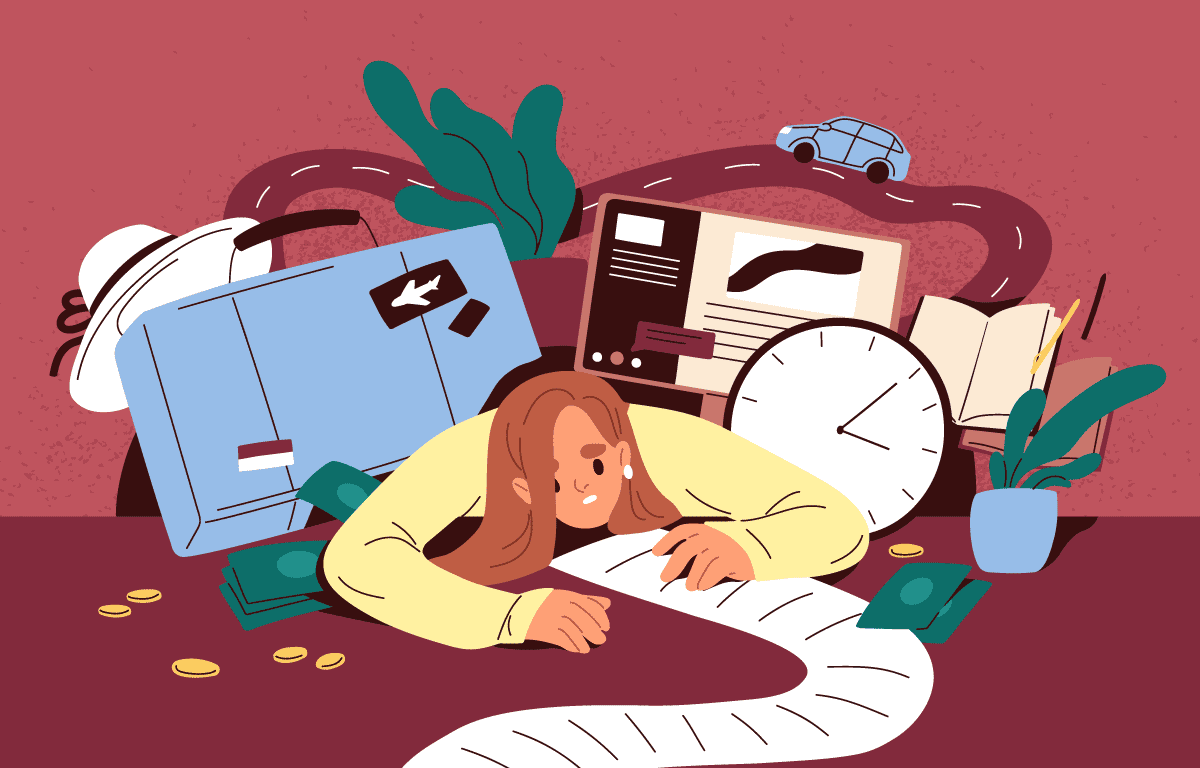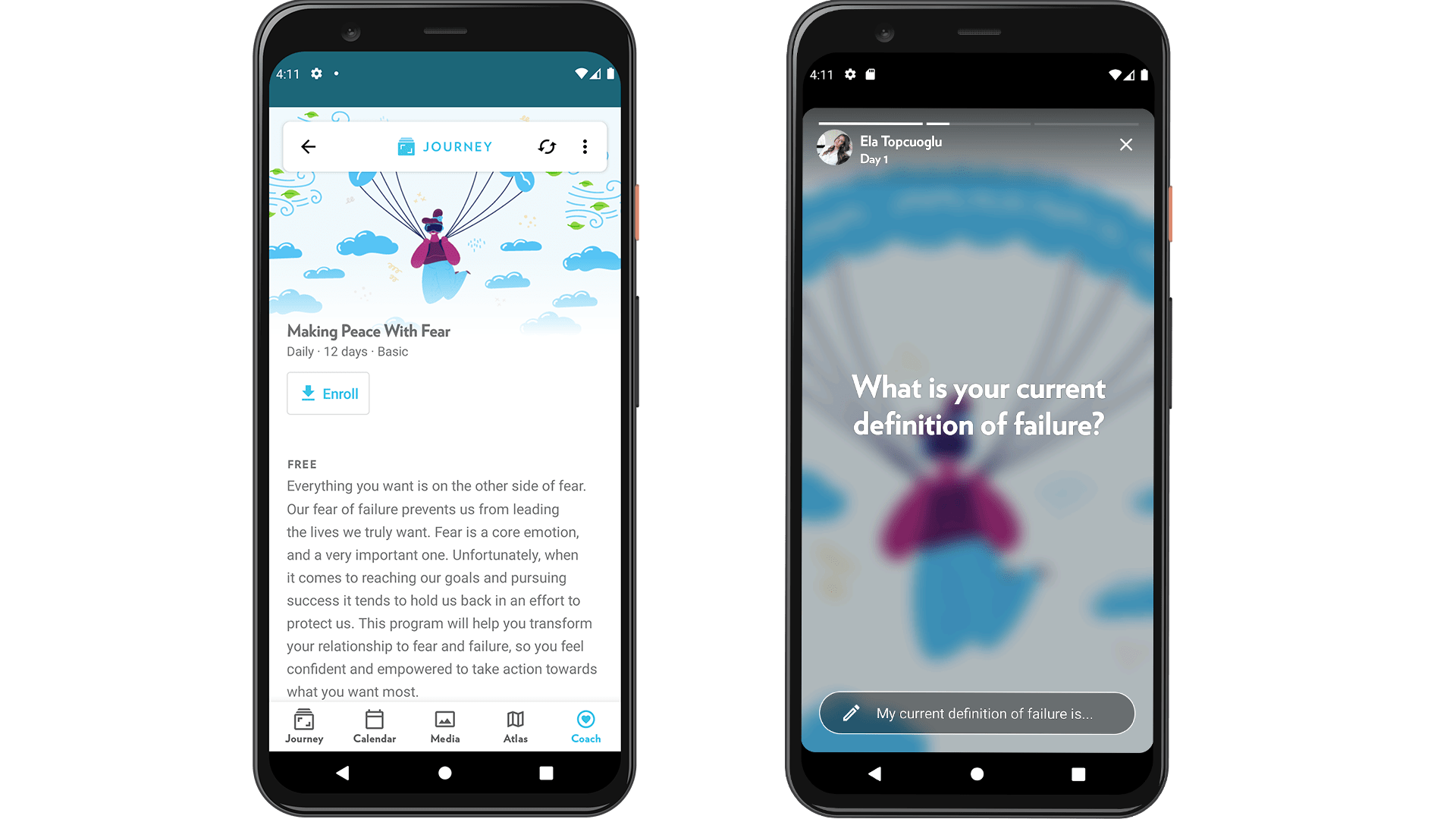Preventing Burnout - How to put your Well-Being First
Burnout is often interpreted as just being tired or fatigued. But experiencing burnout can have lasting effects on your overall health and well-being. Read on to find out more about how to prevent and manage burnout.

Never ending deadlines, an endless list of tasks on your to-do list, social activities to head to, friends and family to catch up with...life does not wait. The hustle and bustle of work, school and our personal lives can be undoubtedly exhilarating and exciting. But on the other end of the spectrum lies the exhaustion, brain fog, emotional fatigue, and body aches that result from constantly being up and running and managing high-pressure situations.
If you have been facing energy-draining or strenuous situations for an extended period of time, it is highly likely that you may start feeling emotionally, mentally, and physically overwhelmed and burnt out. This three-fold combination will have adverse effects on your overall health and well-being in the long run, and it can be difficult to get back on track after feeling the onslaught of burnout and its draining effects.

Photo by Anne Nygård on Unsplash
This makes it all the more crucial to rest and reset your mind, body and soul whenever you feel necessary, before you find yourself having to manage any long-term negative effects. If you have been feeling increasingly irritable, unusually fatigued, emotionally unstable, and withdrawn, pause, it may be time to recalibrate and invest your time and energy into taking care of your well-being.
Here's how you can identify and prevent burnout, and love life again.
What is Burnout?
"Burnout", a term first coined and explored by Herbert Freudenberger and Sigmund Ginsburg in 1974, can be understood as a state or form of physical, mental, emotional exhaustion in combination and to varying degrees. Burnout can occur from being constantly swamped or faced with stressful situations for a prolonged period of time, and can manifest in a multitude of ways that result in dysfunction, unproductivity, stress, and anxiety.
Burnout can occur in multiple spheres of your life; work, school, home, and within personal relationships. Work or school related burnout may cause you to feel a sense of reduced accomplishment and can take a hit at your personal identity, while feeling burnt out because of your home environment and family can cause emotional exhaustion and result in you disengaging and withdrawing from loved ones. On the whole, exhaustion remains to be the core symptom of burnout. The physical, cognitive, and emotional fatigue that contributes to this undermines and affects one’s ability to be productive and feel positive about life.
Burnout is not always easy to identify. Often misinterpreted as temporal fatigue or tiredness, burn out can have lasting effects on your overall well-being. If not identified and managed, you may be faced with chronic and recurring fatigue, insomnia, headaches and stomachaches, increased and easily triggered irritability, anxiety and more. Unlike fatigue, burn out cannot be resolved with a short afternoon nap or stepping away from your desk for 10 minutes to recharge.

Photo by christopher lemercier on Unsplash
If you're constantly emotionally overwhelmed, mentally drained, and finding it increasingly difficult to keep up with a seemingly endless pile of work and errands, you may be experiencing the effects of being burnt out.
Signs of Burnout
Burnout can start surfacing and materialize multiple ways; physically, mentally and emotionally. Some signs of burnout include :
Physical symptoms
- Chronic headaches and neckaches
- Digestive discomfort
- Muscle tension and fatigue
- High blood pressure
- Trembles
Emotional symptoms
- Anxiety
- Fear
- Sense of detachment/depersonalization
- Listlessness
- Isolation
- Increased irritability
- Escape fantasies
Mental symptoms
- Short attention span
- Brain fog
- Lack of creativity
- Cynicism

Photo by Anh Nguyen on Unsplash
How to Manage Feelings of Burnout
While feeling momentary stress and fatigue is almost unavoidable, burnout is definitely preventable. Before you find yourself experiencing an overall collapse, here are some things you can do to keep to take care of your well-being and health.
1. Exercise
Exercising may seem like the last thing you would want to do if you're feeling physically drained. But engaging in exercise has proven to not only be beneficial for your physical health, but also your mental and emotional health. Together with taking care of your physical health, the psychological health benefits are aplenty. It significantly improves your mood and emotional state by reducing stress levels, promotes better quality sleep, reduces anxiety levels, improves self and body-confidence, and heightens cognitive function.
It is not necessary that you put yourself through a 2-hour cardio session daily to reap such benefits. Short and light workouts, such as taking a 15min walk, leisure cycling around your neighborhood and back, or a 10min stretch in the mornings are less strenuous, but still effective ways to incorporate exercise into your daily routine and feel good about.

2. Nourish your body
"You are what you eat."
As the saying goes, vitamin and nutrient-dense foods provide the essential building blocks for the structure and functioning of our cells, muscles, and various systems in our bodies. Healthy food, coupled with other healthy lifestyle habits, allows for your body to function to its optimum. This extends past your physicality. An all-rounded diet helps you set yourself up for lesser mood fluctuations and feeds into an overall happier outlook.
Here are some things you can look out for to ensure you have an all-rounded diet :
- Eat regular meals : To maintain blood-sugar levels and prevent irritability and fatigue.
- Hydrate : To maintain ability to concentrate and help your body systems run effectively.
- Include healthy fat/Omega-3 fatty acids into your diet : Foods such as olive oil, fish, nuts and seeds, and avocados contain healthy fat that your brain requires to function. (Avoid trans fat by staying clear of processed or packaged foods as much as possible!)
- A mix of fruits and vegetables : These food groups are vitamin and mineral-rich that your body needs to regulate and function optimally.
- Add protein : Proteins provide amino acids that aids in regulating your mood.
- Be weary of your caffeine intake : While your morning coffee can be an important part of your morning routine, consuming too much caffeine can cause adverse effects such as difficulty sleeping, increased irritability and anxiety.
3. Clock in sleep
You may feel like you have the grit to go about your day with little sleep. But quality sleep is as vital as the food you eat, the water you drink, and the exercise you get. Your body gets to truly rejuvenate and repair itself, and our brains get the chance to stop working on overdrive and pause while you are complete rest and sleeping. Not getting adequate hours or quality sleep has bee linked to both physical and mental adverse effects such as a weakened immune system and increased probabilities of anxiety and depression respectively.

Photo by Lux Graves on Unsplash
4. Reflect and recalibrate
Journaling is more powerful of a tool than you may have thought.
Take 15mins out of your day to journal in times of emotional or mental distress. Journaling provides a healthy and effective outlet for you to relieve stress and manage feelings of burnout. Having a space to take charge of and track your emotional and mental health, through a personal journal, allows you to make sense of how you're feeling and what has led up to these feelings. It is a pro-active and intentional exercise that helps you process your thoughts, feelings, and ideas in a productive and healthy manner.
If you are unsure as to how to go about journaling, the Journey app provides journal prompts, also known as writing prompts, to help you to focus on what to write. Using journal prompts give you a clearer direction as to how you can go about reflecting.
These prompts can be found in the Coach section of the Journey app, and are designed to help you clarify your thoughts, feelings, and perspective.

5. Support system
Do not hesitate to tap into your support network for a little extra help. Your loved ones and your support network can provide the emotional support that you may need to better deal with life’s difficulties. While detachments and depersonalization are common after-effects of the onset of burnout, urge yourself to reach out to your confidants. Confiding in people that you trust can help you better understand the why's and how's of your situation and arrive at possible solutions as to how you can go about alleviating your stress. While feeling alone may seem like a mental and emotional state, it has also been lined to an array of physical health effects such as increased blood pressure levels, weakened immunity, and cognitive decline.

Photo by Alvin Mahmudov on Unsplash
If you're starting to feel the onset of burnout, take a step back and recalibrate immediately. The long-term effects of burnout and your overall well-being taking a back seat in your life might rid you of fulfilment and happiness. The energy that would be drained by emotional, mental and physical distress could be directed into living your life to the fullest.
Take care!


